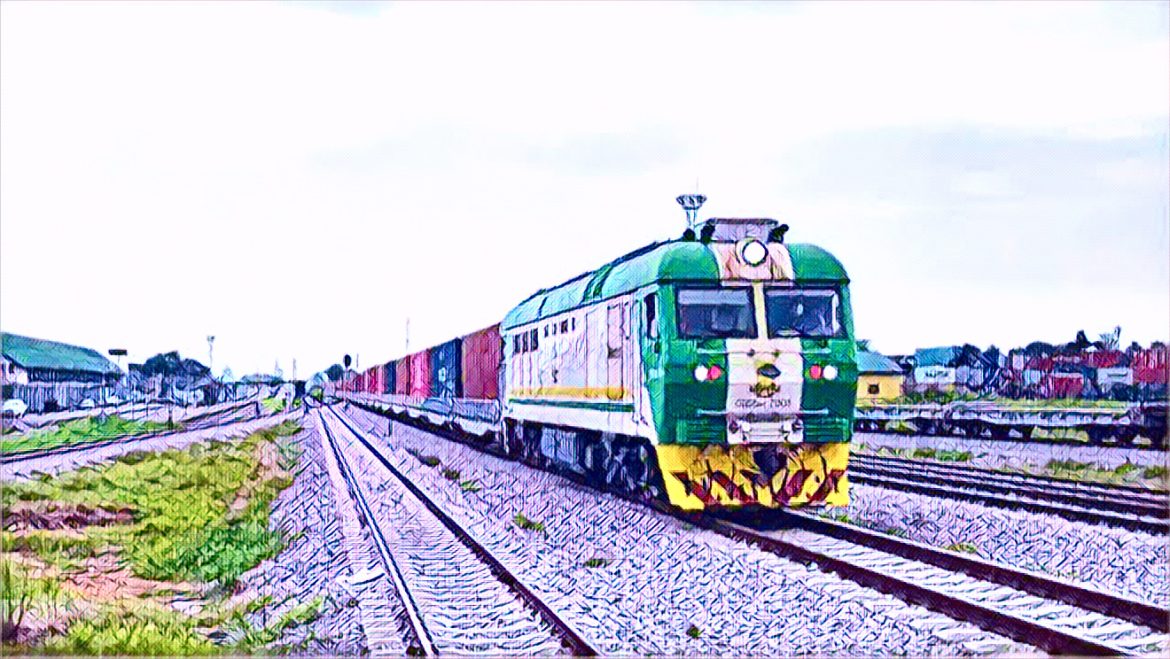In a analysis of the current state of rail transportation in Nigeria, recent statistics have brought to light a significant downturn in the utilization of this once popular mode of travel among Nigerians. The National Bureau of Statistics (NBS), in its latest report for the fourth quarter of 2023, presents a stark comparison with the corresponding period in 2022, underscoring a worrying trend in passenger and cargo transportation via rail.
According to the NBS, a total of 672,198 passengers chose the rail system for their travel needs during the last quarter of 2023, a figure that sharply contrasts with the 1,337,108 passengers recorded in the same quarter of the previous year. This represents a dramatic decline of 49.73 percent in passenger volume, signaling a growing reluctance among Nigerians to use train services. The report further details the transportation of goods, where a more positive note is observed. The volume of goods transported via rail saw a significant increase, with 119,286 tons carried in the fourth quarter of 2023 compared to 53,136 tons in the corresponding quarter of 2022, marking a notable improvement.
Financially, the rail system’s performance painted a mixed picture. Revenue from passenger services in the referenced quarter amounted to N1.07 billion, indicating a decrease of 7.51 percent from the N1.15 billion recorded in the same quarter of the previous year. Conversely, the revenue generated from the transportation of goods and cargoes experienced a substantial rise, recording N423.22 million in the fourth quarter of 2023, up by 169.16 percent from N157.23 million in the previous year’s corresponding quarter. Other sources of revenue also saw a modest increase, with receipts totaling N393.72 million in the fourth quarter of 2023, up by 3.02 percent from N382.17 million in the fourth quarter of 2022.
On an annual comparison, the data reveals a concerning 32.08 percent decrease in the number of passengers utilizing the rail system in 2023 compared to the prior year. The revenue collected from passengers similarly declined by 2.64 percent. However, the volume of cargo and revenue from cargo transportation presented a silver lining, with increases of 102.04 percent and 144.32 percent, respectively, when compared to the figures from 2022.
The broader transportation sector in Nigeria also experienced shifts, as indicated by the Transport Fare Watch for December 2023. It reported a decrease in the average fare paid by commuters for bus journeys within cities, from N1,047.64 in November to N902.70 in December 2023, marking a 13.83 percent reduction. Yet, on a year-on-year basis, there was a 40.03 percent increase from December 2022. For intercity bus travel, December 2023 saw an average fare of N7,402.16, representing a 19.26 percent increase from November and an 86.40 percent rise from December 2022. Air travel also saw an uptick, with the average fare for specified routes increasing by 5.36 percent from November to December 2023 and by 14.87 percent from December 2022.
Other modes of transportation, such as motorcycle taxis (Okada) and water transport, exhibited varied trends. The average fare for motorcycle taxis decreased by 11.29 percent from November to December 2023 and saw a 9.04 percent decrease on a year-on-year basis. Conversely, water transport fares increased by 2.52 percent from November to December 2023, with a notable year-on-year increase of 34.77 percent from December 2022.
This comprehensive analysis, drawing on the latest data from the National Bureau of Statistics and the Transport Fare Watch, highlights the dynamic and sometimes volatile nature of Nigeria’s transportation sector. The significant decline in rail passenger numbers suggests a crisis of confidence in the safety and reliability of the rail system, reflecting broader challenges in the country’s transportation infrastructure. Meanwhile, the surge in cargo transportation via rail and the varying trends across other transportation modes underscore the complex interplay of economic, logistical, and consumer preference factors shaping Nigeria’s transport landscape.


